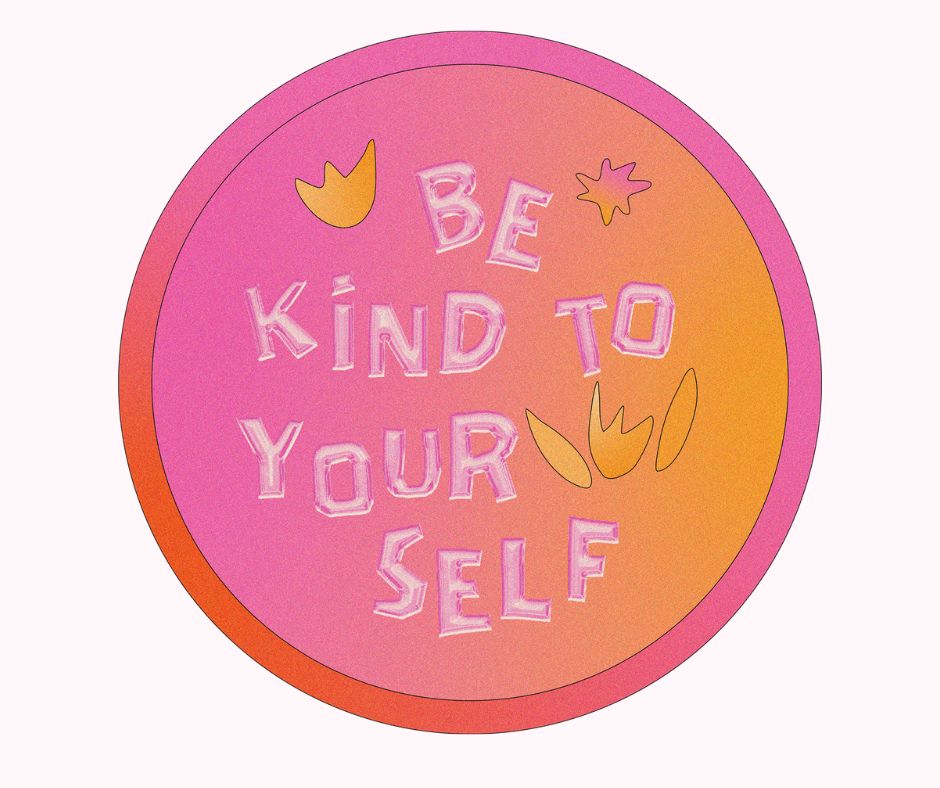Self-Care for Romance Authors

I don’t know what being an author was like before the Internet. Marketing was different for sure. And while there were bad reviews and haters, chances were most authors didn’t directly hear from them.
Today, reaching readers around the world is fast and easy, while at the same time, boosting the amount of work authors need to do. I listened to a podcast interview with Skye Warren once in which she talked about trying to do all the things when it came to her author career and it made her sick.
Then there is the direct input from readers that can be wonderful, in the case of fans, but really demoralizing from mean people. Let’s face it, many people say things to others online that they probably wouldn’t say face-to-face. The Internet has a distance that some people feel emboldened to speak their first impulses, but those on the receiving end don’t have that same sense of distance. Mean words hurt.
It seems to me that the Internet has made some aspects of being an author easier and yet harder, and sometimes overwhelming and emotionally fraught. Authors need to take care that they don’t let the work or negativity bring them down.
Self-care isn’t just a trendy buzzword; it’s a vital practice that allows us to continue doing what we love—writing with passion and purpose. Whether you’re overwhelmed by all the moving parts to writing, publishing, and marketing your romance novels, managing the ouch of a negative review, or booted from a group for saying “AI,” taking time to nurture yourself is key to sustaining your creativity and avoiding burnout.
By prioritizing self-care, you’re ensuring that your passion for writing remains as vibrant and enduring as the romances you create.
Building a Strong Mental Health Foundation
The sturdiest structures are built on a strong foundation. The stronger your mental health, the better you’re able to weather the storms that can batter you through the writing, publishing, and market process. A strong base of mental health comes from taking care of yourself as a matter of course, not just when the winds are blowing.
Here are tips to shoring up your mental health foundation.
By the way…I doubt much of what is listed below will be a surprise. Activities such as exercise, eating right, and getting enough sleep are the solution to many of life’s challenges. But are you doing them? I know I don’t always maintain as healthy of lifestyle as I can.
Physical Self-Care
- Regular Exercise: Engage in activities like walking, yoga, or stretching to relieve tension from long hours of writing.
- Healthy Eating: Maintain a balanced diet to keep your energy levels steady.
- Adequate Sleep: Prioritize getting enough rest to stay sharp and creative.
- Frequent Breaks: Take short breaks during writing sessions to stretch, move around, and rest your eyes.
- Ergonomic Workspace: Set up a comfortable and supportive workspace to prevent strain on your body.
Mental and Emotional Self-Care
- Mindfulness and Meditation: Practice mindfulness techniques to reduce stress and improve focus.
- Journaling: Reflect on your thoughts and emotions through journaling to process your experiences.
- Creative Outlets: Engage in other creative activities like painting, music, or crafting to refresh your mind.
- Reading for Pleasure: Take time to read books purely for enjoyment, without the pressure of analyzing them.
- Positive Affirmations: Use affirmations to boost your confidence and combat self-doubt.
Social and Community Care
- Connect with Fellow Authors: Join writing groups or online communities to share experiences and offer support. I you’re not yet a member of Write with Harte, join us for camaraderie and support.
- Attend Writing Events: Participate in writing workshops, book signings, or author panels to stay connected with the writing community.
- Set Boundaries: Clearly define your working hours and personal time to avoid burnout.
- Reach Out for Help: If you’re feeling overwhelmed, talk to a friend, mentor, or therapist.
Professional Self-Care
- Organize Your Schedule: Create a realistic writing schedule that includes time for breaks and personal activities.
- Celebrate Small Wins: Acknowledge and celebrate milestones in your writing process.
- Manage Expectations: Set achievable goals and be gentle with yourself if things don’t go as planned.
- Continual Learning: Take courses or read about topics that interest you or could enhance your writing skills.
- Delegate Tasks: If possible, delegate tasks like editing, marketing, or formatting to professionals.
Spiritual Self-Care
- Nature Walks: Spend time outdoors to reconnect with nature and clear your mind.
- Spiritual Practices: Engage in activities that nourish your spirit, such as prayer, meditation, or reading spiritual texts.
- Gratitude Practice: Maintain a gratitude journal to remind yourself of the positive aspects of your life and writing journey.
How to Take Care of Yourself in the Midst of Angst
Similar to how lifting weights will strengthen your muscles, the activities above will strengthen your fortitude and resilience when the poop hits the fan or something happens that knocks your confidence off-kilter.
But what do you do when the bad review comes in? Or when someone is particularly mean online? Or maybe your sales are down or your ad was blocked. Sh1t happens, right? How can you get up when knocked down? Here are a few tips.
1. Take a Break: Step away from your writing and give yourself permission to rest. Even a short break can help clear your mind. While you don’t want to be away from writing too long, it might be necessary to take some time off.
2. Practice Deep Breathing: Engage in deep breathing exercises to calm your nervous system and reduce stress. This sounds too easy, when the body and mind are stressed, people tend to take shorter breaths that lead to more tension. There’s a reason why pregnant women are taught breathing exercises for labor. It’s calming. It turns the focus onto something else. It brings more oxygen into the body.
3. Go for a Walk: A change of scenery and some fresh air can do wonders for your mental state. Walking helps clear your mind and can spark new ideas.
4. Engage in Physical Activity: Whether it’s yoga, dancing, or a workout, physical movement can help release pent-up tension and improve your mood.
5. Journal Your Thoughts: I whine a lot in my journal. Sometimes I don’t like that I’m negative in my journal, but ultimately, by writing all my fussing down, I get it out of my head and body. Sometimes the process of writing leads to a better understanding of what the problem is, which can help me find solutions.
6. Listen to Music: Put on some soothing or uplifting music to shift your mood and provide a mental escape. When I was a social worker, I had a few days a week when I had to work in an office in which my coworkers were always negative. On the way to work, I’d listen to Get Over It by the Eagles to psych me up for those days. Create a playlist of songs that perk you up. Here are a few songs to consider:
- Walking on Sunshine by Katrina and the Waves.
- I Will Survive by Gloria Gaynor
- Lovely Day by Bill Withers
- Roar by Katy Perry
- Firework by Katy Perry
- Don’t Stop Believing by Journey
- Happy by Pharrell Williams
- Can’t Stop the Feeling by Justin Timberlake
- I Am Woman by Helen Reddy
- Don’t Stop Me Now by Queen
- Girl on Fire by Alicia Keys
- Unwritten by Natashia Bedingfield
- Ode to Joy by Beethoven
- Stronger by Kelly Clarkson
- Don’t Give Up by Peter Gabriel and Kate Bush
7. Talk to Someone: Reach out to a friend, fellow author, or therapist to share your thoughts and feelings. Sometimes, just talking things out can bring relief. I think sometimes we feel like everyone is doing awesome and we’re alone in our challenges. The truth is, others have gone through or are going through many of the same issues you are. It can be nice to realize you’re not alone in the struggle. And sometimes you’ll find tips to help you through it.
8. Practice Mindfulness or Meditation: Spend a few minutes practicing mindfulness or meditation to center yourself and reduce anxiety.
9. Declutter Your Space: This might sound like a weird strategy, but I know for me, sometimes my low mood comes from a disorganized space and mind. A tidy environment can lead to a clearer mind and a renewed sense of control.
10. Revisit Your Why and Goals: Set Small, Achievable Goals: Remind yourself of why you started this journey. Get back that feeling of excitement about writing and sharing your stories with the world.
11. Limit Social Media: This is especially helpful if the source of your challenges is online. Take a break from social media to avoid comparison traps, information overload, and negativity. Focus on what’s important to you. When you go back online, unfollow anyone who posts things that impact you negatively (I’ve had to do this a lot during election cycles).
13. Engage in a Different Creative Activity: Do something creative that isn’t related to writing, like drawing, cooking, or crafting. This can refresh your mind and inspire new ideas.
14. Practice Self-Compassion: Be kind to yourself. Sometimes a negative trigger can lead to a spiralling of more negative thinking. I’m prone to this. One bad thing happens and next I’m listing all the bad things that could happen or piling on all the reasons why I suck and won’t be successful. Acknowledge that it’s okay to feel overwhelmed and that taking care of yourself is a priority.
15. Take a Power Nap: While you don’t want to hide away and give into the down feelings in a way that reinforces them, there can be a restoration in sleep. A short nap can recharge your energy and improve your mental clarity.
16. Treat Yourself: Do something nice for yourself, whether it’s enjoying a favorite snack, buying yourself flowers, taking a hot bath, or watching a comforting movie.
17. Practice Gratitude: Like deep breathing, gratitude is so easy that you wonder how it can actually work. But it does. Reflect on what you’re grateful for, both in your writing journey and in life. Gratitude can shift your focus away from negative stuff to positivity.
18. Limit Your To-Do List: Just this morning, I erased (not even crossed off) several items on my To Do list. I have stuff from yesterday that didn’t get done because I ended up spending time with my sister and mother. Tomorrow, I have the day blocked off to be with my hubby who is going into surgery. So why did I think I could do all the things? I can’t. So today, I erased (I love erasable pens) several items. Now when I look at my planner, it’s more manageable, and the stress is lowered. Prioritize tasks and allow yourself to push less critical ones to another day. Lightening your load can alleviate stress.
19. Reset Your Goals: Goals offer a roadmap and timeline to your success, but they’re not set in stone. If you’ve bitten off more than you can chew, or perhaps, the plan isn’t working and you need to evaluate and reset, do it. Don’t keep on keepin’ on with something that is making you stressed out especially if it’s not bringing you closer to your goals. Take a breath. Reassess. Make a new plan.
20. Stay Away from Negative Spaces: Okay, so you can’t always do this. Negative Nellys are everywhere. But you can try to avoid or limit time in spaces that you know have negative energy. Social media is one (see number 11), but there are likely others. I tend not to read my Goodreads reviews (by the way, reviews are for readers, not authors, which means you shouldn’t respond to them). I left a Facebook group once because I realized every day there was drama. Sometimes I’d perseverate on it even when I wasn’t online. I don’t need that. I left a critique group that I’d really liked, but a few new players turned the time into something negative and stressful.
21. Seek Professional Help: If feelings of overwhelm persist, consider speaking with a mental health professional. They can offer strategies and support tailored to your needs.
In all you do, you’re only as good as your attitude, energy, and mental health. As they say on the airplane, if the oxygen masks drops down, put yours on first, then help others. The same is true in life. You’re at your best if you take time to care for yourself first. Not in a narcissistic way. But in the way that gives you the energy and mindset to take on the world.








Responses